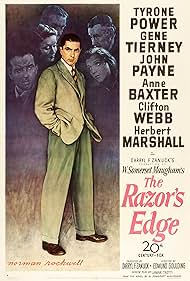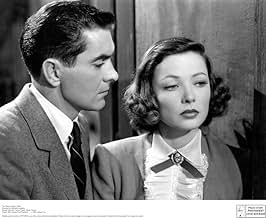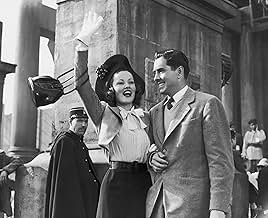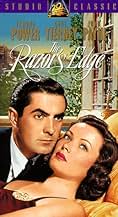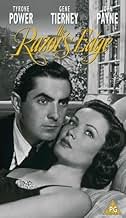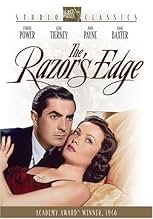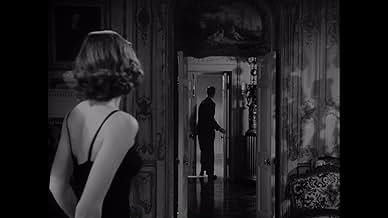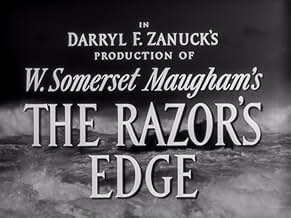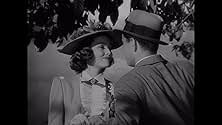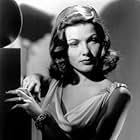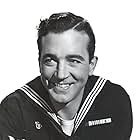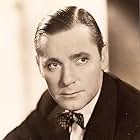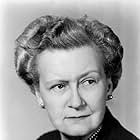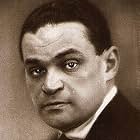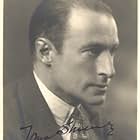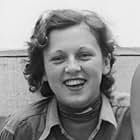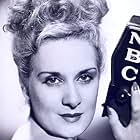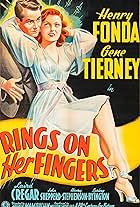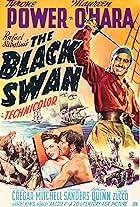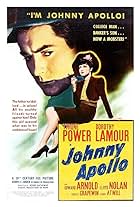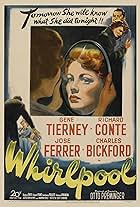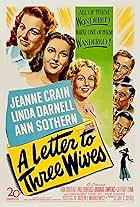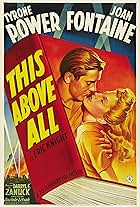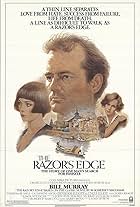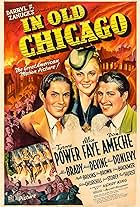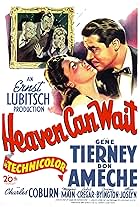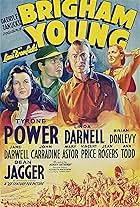An adventuresome young man goes off to find himself and loses his socialite fiancée in the process. But when he returns 10 years later, she will stop at nothing to get him back, even though ... Read allAn adventuresome young man goes off to find himself and loses his socialite fiancée in the process. But when he returns 10 years later, she will stop at nothing to get him back, even though she is already married.An adventuresome young man goes off to find himself and loses his socialite fiancée in the process. But when he returns 10 years later, she will stop at nothing to get him back, even though she is already married.
- Won 1 Oscar
- 3 wins & 3 nominations total
Dorothy Abbott
- Showgirl
- (uncredited)
George Adrian
- Party Guest
- (uncredited)
Demetrius Alexis
- Abbe
- (uncredited)
Olga Andre
- Minor Role
- (uncredited)
John Ardell
- Banker
- (uncredited)
Frank Arnold
- Miner
- (uncredited)
- …
Juan Arzube
- Minor Role
- (uncredited)
Storyline
Did you know
- TriviaThere were 89 different sets built for the film, which had the longest shooting schedule for any film at the studio to that date. According to some news items, the film broke all previous studio box office records.
- GoofsAfter a promising beginning, in which the clothes and hairstyles of 1919 are pleasantly and reasonably accurately interpreted, as soon as it gets to 1920, then on to 1930, and beyond, Gene Tierney's hairstyle is in an unchanging, although very attractive, 1946 mode, and all of her clothes, designed by husband Oleg Cassini, except for lower hemlines, are strictly 1946, complete with the ubiquitous shoulder pads of that era. Anne Baxter's ensembles look more like Tierney/Cassini rejects, an unhappy compromise between opposing styles.
- Crazy creditsWhen the screenplay credits are shown, a curious symbol appears near W. Somerset Maugham's name. It's a symbol meant to ward off the evil eye, and it more often than not appeared on the covers of many of Maugham's novels.
- ConnectionsFeatured in Twentieth Century Fox: The First 50 Years (1997)
Featured review
British storyteller W(illiam) Somerset Maugham's 1944 speculative novel "The Razor's Edge," as did his earlier semi-autobiographical "Of Human Bondage," won a devoted following when it hit the book shelves, and so 20th Century-Fox wasted no time in securing the screen rights to this mammoth war-era adventure into existentialism. It was a difficult, elephantine undertaking but they somehow managed to carve out a screenplay and present the whole package within two years of the novel's first print.
Awesomely produced and directed, the resulting movie, for the most part, propels Maugham's central theme -- that there is good and bad in all human beings. The focus centers in on the long, spiritual quest of Larry Durrell, a basically virtuous individual who, surrounded by wealth, beauty and privilege, abandons his enviable but superficial trappings to pursue a more humble, meaningful life. Oddly enough, it's the superficial elements of the story and the more pretentious characters that hold up "The Razor's Edge," while the spiritual scenes grow flat and weary, often times stopping the action dead in its tracks.
In casting Tyrone Power as the protagonist, one finds THE major flaw in its presentation. Tagged as a pretty boy for most of his career, he managed to show only glimpses of dramatic aptitude from time to time ("Witness for the Prosecution" comes to mind). Earnest and utterly sincere in his approach, Power simply lacks the power (sorry) and the depth to carry off this complex, confused, anachronistic soul-searcher. His Durrell seems better suited amongst the shallow and superficial. One only wonders what a Robert Donat or Fredric March might have done with such a role.
Surrounding Power, however, is a stellar list of names that gussies up this production, and it is in them that we find the film's emotional impact. In particular, Gene Tierney offers one of her finest performances as Isabel, the grasping, captivating socialite obsessed with Durrell, who shows her true colors in the end when goodness and all else fails to win her the love of a man. Like Power, Tierney is a flawless, incredibly photogenic beauty who tended toward posturing instead of acting. Here she is allowed to capitalize on her tendency towards elegant frippery, offering a cool, intriguing portrait of a woman who can and will never have enough.
We are also blessed with the presence of Clifton Webb, the epitome of smug elegance, who is true to form here as the meticulous, wasp-tongued prig who is not use to being told "no." As in the classic "Laura," Webb is handed the film's most delicious lines as his character goes about buffering his unhappiness with scorn and witty sarcasm. He would warm over this character recipe many times in movies, but darned if you don't keep going back for second helpings. He is delightfully hateful and absolutely mesmerizing. Anne Baxter as the helpless, tragic Sophie is heart-wrenching, giving a florid, Oscar-winning performance that lingers long after the final reel. She, not Power, is the heart and ravaged soul of this piece. The hospital scene following her horrific accident will rip you apart, as will her subsequent degradation into alcohol and prostitution. Known for her flashy, theatrical roles, Baxter plays Sophie for all its worth.
John Payne is typically upright and appealing and does what he can in a rather stiff, thankless "other man" part, while suave Herbert Marshall, who, in reality, lost a leg in WWI but continued to act (often in a chair), portrays Maugham himself with customary flair.
Granted, "The Razor's Edge" is no "Lost Horizon" in the metaphysical department, but on its own it is quite admirable and engrossing entertainment. It manages to hold up exceedingly well under its great length and weight, feels only slightly dated, and prides itself with gorgeous production values and a handsome, handsome cast.
Awesomely produced and directed, the resulting movie, for the most part, propels Maugham's central theme -- that there is good and bad in all human beings. The focus centers in on the long, spiritual quest of Larry Durrell, a basically virtuous individual who, surrounded by wealth, beauty and privilege, abandons his enviable but superficial trappings to pursue a more humble, meaningful life. Oddly enough, it's the superficial elements of the story and the more pretentious characters that hold up "The Razor's Edge," while the spiritual scenes grow flat and weary, often times stopping the action dead in its tracks.
In casting Tyrone Power as the protagonist, one finds THE major flaw in its presentation. Tagged as a pretty boy for most of his career, he managed to show only glimpses of dramatic aptitude from time to time ("Witness for the Prosecution" comes to mind). Earnest and utterly sincere in his approach, Power simply lacks the power (sorry) and the depth to carry off this complex, confused, anachronistic soul-searcher. His Durrell seems better suited amongst the shallow and superficial. One only wonders what a Robert Donat or Fredric March might have done with such a role.
Surrounding Power, however, is a stellar list of names that gussies up this production, and it is in them that we find the film's emotional impact. In particular, Gene Tierney offers one of her finest performances as Isabel, the grasping, captivating socialite obsessed with Durrell, who shows her true colors in the end when goodness and all else fails to win her the love of a man. Like Power, Tierney is a flawless, incredibly photogenic beauty who tended toward posturing instead of acting. Here she is allowed to capitalize on her tendency towards elegant frippery, offering a cool, intriguing portrait of a woman who can and will never have enough.
We are also blessed with the presence of Clifton Webb, the epitome of smug elegance, who is true to form here as the meticulous, wasp-tongued prig who is not use to being told "no." As in the classic "Laura," Webb is handed the film's most delicious lines as his character goes about buffering his unhappiness with scorn and witty sarcasm. He would warm over this character recipe many times in movies, but darned if you don't keep going back for second helpings. He is delightfully hateful and absolutely mesmerizing. Anne Baxter as the helpless, tragic Sophie is heart-wrenching, giving a florid, Oscar-winning performance that lingers long after the final reel. She, not Power, is the heart and ravaged soul of this piece. The hospital scene following her horrific accident will rip you apart, as will her subsequent degradation into alcohol and prostitution. Known for her flashy, theatrical roles, Baxter plays Sophie for all its worth.
John Payne is typically upright and appealing and does what he can in a rather stiff, thankless "other man" part, while suave Herbert Marshall, who, in reality, lost a leg in WWI but continued to act (often in a chair), portrays Maugham himself with customary flair.
Granted, "The Razor's Edge" is no "Lost Horizon" in the metaphysical department, but on its own it is quite admirable and engrossing entertainment. It manages to hold up exceedingly well under its great length and weight, feels only slightly dated, and prides itself with gorgeous production values and a handsome, handsome cast.
- gbrumburgh-1
- Aug 21, 2001
- Permalink
- How long is The Razor's Edge?Powered by Alexa
Details
- Release date
- Country of origin
- Languages
- Also known as
- W. Somerset Maugham's The Razor's Edge
- Filming locations
- Denver, Colorado, USA(2nd unit exteriors, backgrounds, mountains)
- Production company
- See more company credits at IMDbPro
Box office
- Budget
- $1,200,000 (estimated)
- Runtime2 hours 25 minutes
- Color
- Aspect ratio
- 1.33 : 1
Contribute to this page
Suggest an edit or add missing content

